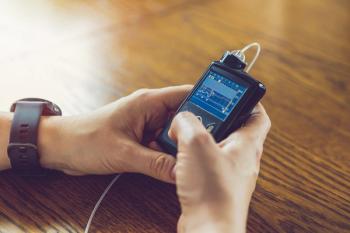
How Health-System Specialty Pharmacists’ Actions Impact External Pharmacy Patients
The analysis revealed deeper issues created by payer and manufacturer lockouts placed on Integrated Health System Specialty Pharmacies.
A quality improvement study presented in a poster at this year’s American Society of Health-System Pharmacists Midyear Clinical Meeting & Exposition evaluated the number and type of actions performed by Integrated Health System Specialty Pharmacy (HSSP) pharmacists as part of clinical care for patients who filled specialty medications at an external specialty pharmacy.1
Investigators determined that the frequency at which specialty pharmacists completed medication access coordination and access issue actions for patients who used external HSSPs indicated a lack of visibility in the patient journey and increased provider workload, highlighting larger issues stemming from payer and manufacturer lockouts.
In performing their analysis, investigators sought to quantify the impact of actions completed by specialty pharmacists for patients who did not utilize the HSSP to justify resources and understand differences in care. The analysis also calculated the estimated labor costs associated with the pharmacists’ time spent completing these actions.
Investigators evaluated actions among pharmacists on specialty care teams across the neurology, hepatology, and adult gastroenterology (GI)/inflammatory bowel disease (IBD) clinics at the health system.
Between January 1, 2023, and May 31, 2023, specialty pharmacists documented actions taken during communication encounters with patients who did not utilize the HSSP in flowsheets within the electronic health record and further categorized the action being taken, the outcome of the action, and the time spent performing the action. A descriptive analysis of outcomes was performed on these measures, and investigators noted that each action may have received more than 1 outcome documented.
In total, pharmacists documented 3462 unique interactions during the study period. Given that investigators sought to evaluate only the actions completed for patients who did not use the HSSP, 1817 actions completed for patients who sent at least 1 fill to the HSSP were excluded from analysis.
Across the neurology, hepatology, and adult GI/IBD clinics, pharmacists documented 1160 (n = 389 patients), 143 (n = 73 patients), and 342 (n = 252 patients) actions for patients who did not utilize the HSSP, respectively. Medication Access Coordination (61.8%), Prescription Prep (8.4%), and Therapy Monitoring (7.5%) accounted for the most common quick actions performed in the neurology clinic. In the hepatology clinic, the most common quick actions performed were Medication Access Coordination (25.0%), Lab Coordination (18.8%), and Access Issues (10.8%). The most common quick actions in the GI/IBD clinic were Medication Access Coordination (69.5%), Medication Counseling (11.9%), and Appointment Coordination (8.0%).
A median of 45.8, 8.7, and 20.4 hours per month were spent by specialty pharmacists completing quick actions across the neurology, hepatology, and adult GI/IBD clinics, respectively. Over the course of the 5-month study period, the total labor cost associated with the actions completed for patients utilizing an external specialty pharmacy measured at $30,429.
Although specialty pharmacists complete many actions to facilitate specialty medication education, access, adherence, and persistence, regardless of a patient’s use of the HSSP, payer and manufacturer lockouts hinder pharmacists’ ability to dispense necessary medications. Investigators explained that the common use of medication access coordination and access issue services among patients using external HSSPs emphasized the lack of visibility in the patient journey and increased the provider workload, representative of the larger issues that specialty pharmacists experience in the face of such lockouts.
Reference
1. Mitchell A, Nix R, Whelchel K, Zuckerman A. Quantifying health-system specialty pharmacists’ interventions for patients utilizing external pharmacies. Presented at: American Society of Health-System Pharmacists Midyear Clinical Meeting & Exhibition; December 3-7, 2023; Anaheim, CA. Poster 4-071.
Newsletter
Pharmacy practice is always changing. Stay ahead of the curve with the Drug Topics newsletter and get the latest drug information, industry trends, and patient care tips.























